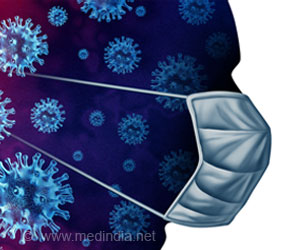A unique feature of the SARS-CoV-2 genome controls protein synthesis and presents an Achilles heel of the virus

‘Unique feature of the SARS-CoV-2 genome controls protein synthesis and presents an Achilles heel of the virus. The interaction between the viral genome and the ribosome during frameshifting is found to be responsible for their control over the host cell. This may help in the development of antiviral drugs that specifically target the frameshifting mechanism of the viruses.’





This ribosome generally codes the information through a three-letter code that defines the corresponding amino acid that is being attached to the growing protein. Any slip in this critical three-letter mechanism of the ribosome is called "a frameshift," and it leads to an incorrect reading of the genetic code and generating dysfunctional cellular proteins. The coronaviruses ¡V SARS-CoV-2 virus is critically dependent on frameshifting promoted by an unusual and intricate fold in the viral RNA. And any compound that inhibits frameshifting by targeting this RNA fold could potentially be useful as a drug to combat infection. However, very little evidence exists on the interaction of the viral RNA with the ribosome to promote frameshifting.
Frameshifting of Coronavirus
The present study managed to capture the ribosome at the frameshifting site of the SARS-CoV-2 RNA genome using sophisticated biochemical experiments to further study this molecular complex using cryo-electron microscopy.
The results provided a molecular description of the process in unprecedented detail and revealed several novel unanticipated structural changes of dynamic ribosome machines into a strained conformation.
Advertisement
Target for Antiviral Drug Development
Advertisement
In their experiments, two compounds (currently not potent therapeutics) reduced viral replication by three to four orders of magnitude and were not toxic for the treated cells. However, one of the two reduced viral replication by inhibiting ribosomal frameshifting, while the other might act through a different mechanism.
Since all coronaviruses depend on this conserved frameshifting mechanism, the findings paves way for the development of a drug that targets this process and thus may even be useful to treat infections by more distantly related coronaviruses.
"Our future work will focus on understanding the cellular defense mechanisms that suppress viral frameshifting, as this could be useful for development of small compounds with similar activity," says Nenad Ban, Professor for Molecular Biology at ETH Zurich and co-author of the study.
Source-Medindia














